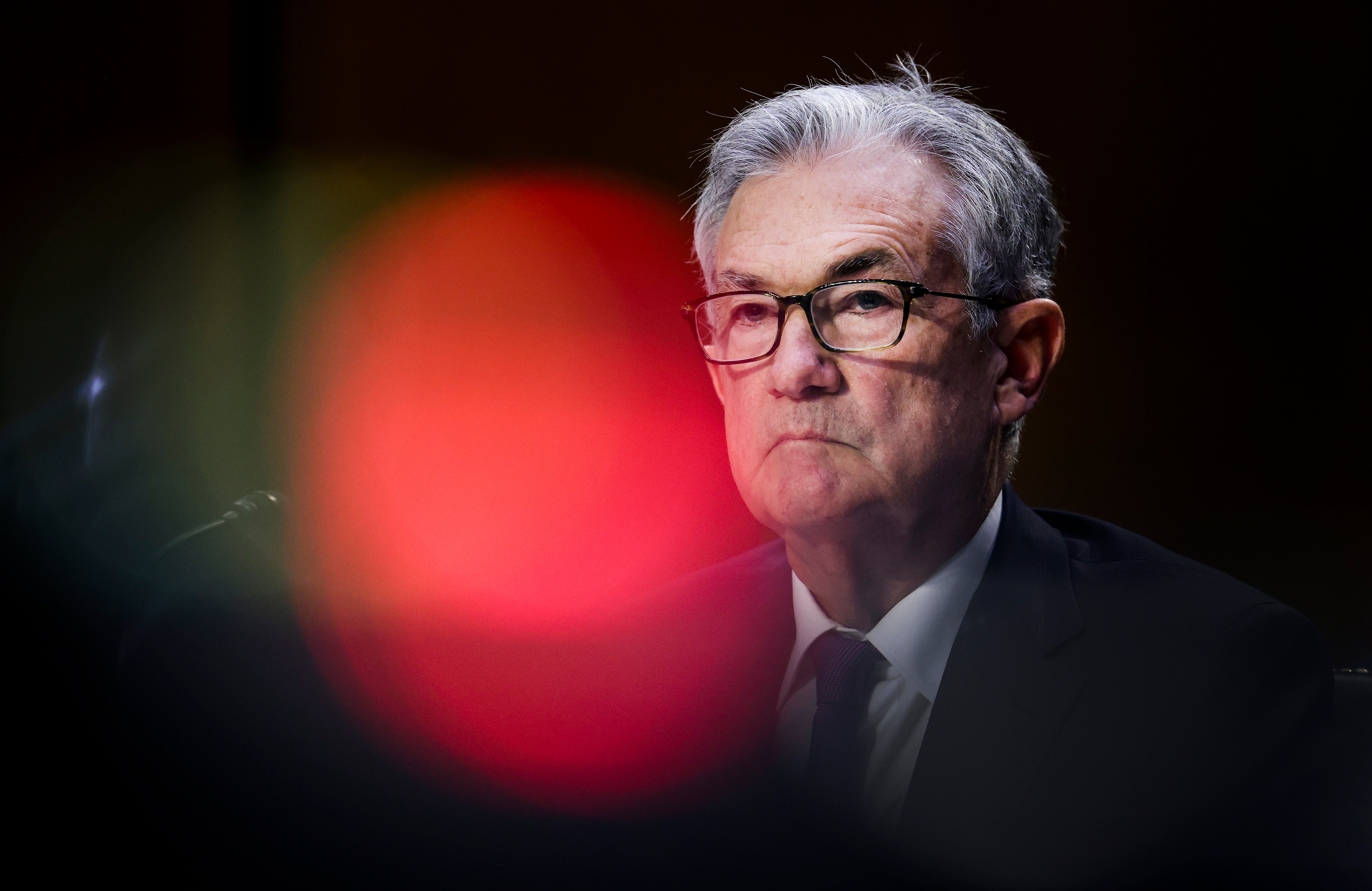Powell defends Fed policies, says inflation may persist
Federal Reserve Chair Jerome Powell is defending the ultra-low interest rate policies he has pursued since the pandemic decimated the economy more than 18 months ago

Your support helps us to tell the story
From reproductive rights to climate change to Big Tech, The Independent is on the ground when the story is developing. Whether it's investigating the financials of Elon Musk's pro-Trump PAC or producing our latest documentary, 'The A Word', which shines a light on the American women fighting for reproductive rights, we know how important it is to parse out the facts from the messaging.
At such a critical moment in US history, we need reporters on the ground. Your donation allows us to keep sending journalists to speak to both sides of the story.
The Independent is trusted by Americans across the entire political spectrum. And unlike many other quality news outlets, we choose not to lock Americans out of our reporting and analysis with paywalls. We believe quality journalism should be available to everyone, paid for by those who can afford it.
Your support makes all the difference.Federal Reserve Chair Jerome Powell on Wednesday defended the ultra-low interest rate policies he has pursued since the pandemic decimated the economy more than 18 months ago.
But he acknowledged inflation has stayed higher for longer than he expected.
At a panel sponsored by the European Central Bank Powell was asked if the Fed is “overdoing it” with its policy of cutting its short-term interest rate to nearly zero and purchasing $120 billion a month in bonds to lower longer-term rates.
“The historical record is thick with examples of underdoing it,” Powell responded. “And pretty much in every cycle, we just tend to underestimate the damage and underestimate the need for a response. I think we’ve avoided that this time.”
Criticism of the Fed's policies, however, has grown in recent months as inflation has jumped to 30-year highs. The economy's main challenge, meanwhile, has shifted from weak demand as a result of widespread layoffs, which the Fed can help counter with lower interest rates, to supply shortages, which the Fed can do little about.
When consumers began ramping up spending this spring and summer, fueled by stimulus checks, many businesses were caught off guard, and shortages of cars, furniture and electronics quickly materialized. That pushed inflation to 4.2% in July from a year earlier, according to the Fed's preferred measure.
Powell initially called such inflation “transitory” and said it would fade as the economy reopened further and the supply chain kinks were worked out. In recent comments, however, that description has faded.
Many supply bottlenecks remain, with ships backed up at major West Coast ports. And shortages of chemicals are now pushing up prices for a range of goods from plastics to paint.
Powell said it is “frustrating to see the bottlenecks and supply chain problems not getting better, in fact, at the margin, apparently getting a little bit worse.”
“We see that continuing into next year probably and holding inflation up longer than we had thought,” Powell concluded.
Still, Fed officials forecast that inflation will decline over the next 12 months, to just 2.2% by the end of 2022.
Powell also said that the delta variant of the coronavirus has slowed the U.S. economy and hiring. Job gains in August were about one-quarter the level they had been in June and July.
“It is frustrating to acknowledge that getting people vaccinated and getting delta under control 18 months later still remains the most important economic policy that we have,” he said.